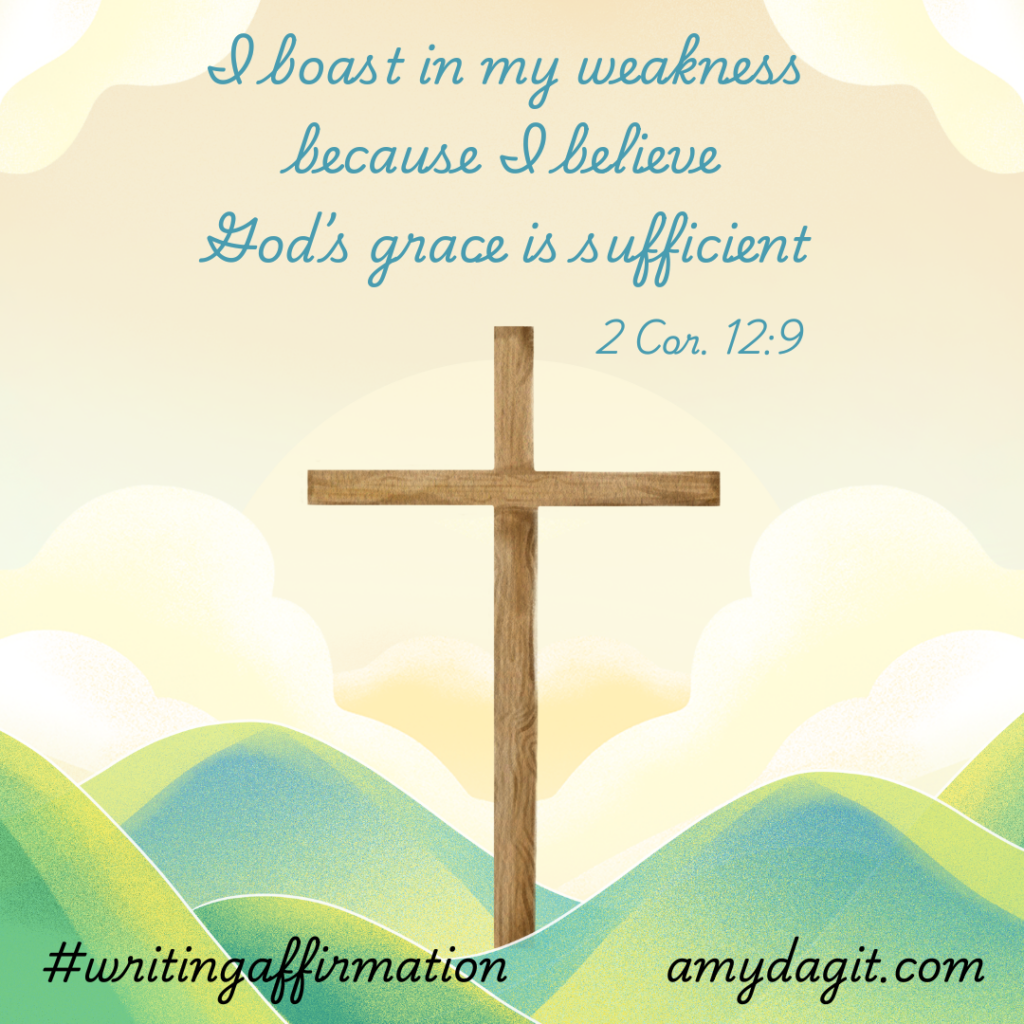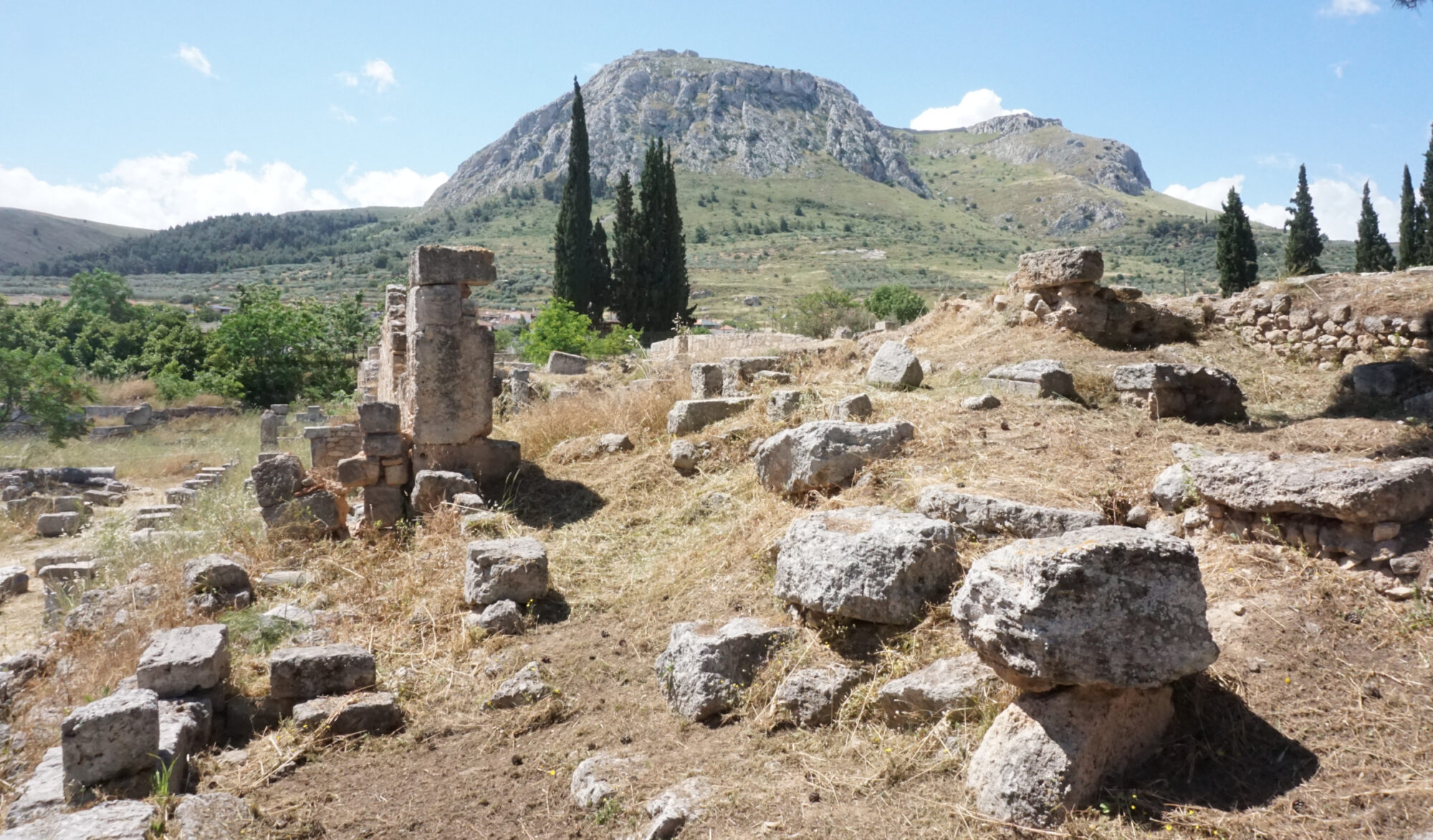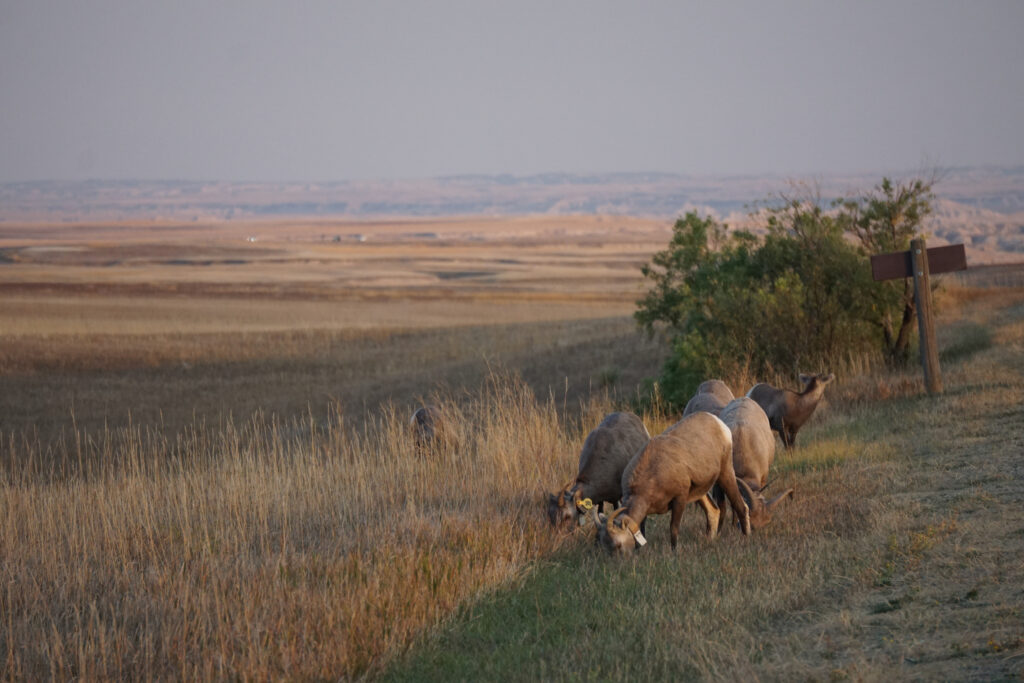
2 Corinthians 12:9 (ESV)—But he said to me, “My grace is sufficient for you, for my power is made perfect in weakness.” Therefore I will boast all the more gladly of my weaknesses, so that the power of Christ may rest upon me.
Do you ever feel awkward sharing your writing with others? I sure do. Especially when I write devotionals and share intimate moments of my life, that is, those occasions when I display weakness.
After reading this verse, though, I feel better about sharing. When I write and share about my weaknesses, I am boasting in God’s power and the effect it’s had on my life. Moreover, through examples of my weaknesses, God can strengthen the faith of others and draw them nearer to him.
Think about his power the next time you’re biting your lip, wondering if you want to share a personal moment with an audience. Whose life might he change by drawing upon your weakness to perform his work? Indeed, by his grace, our weakness is powerful.













